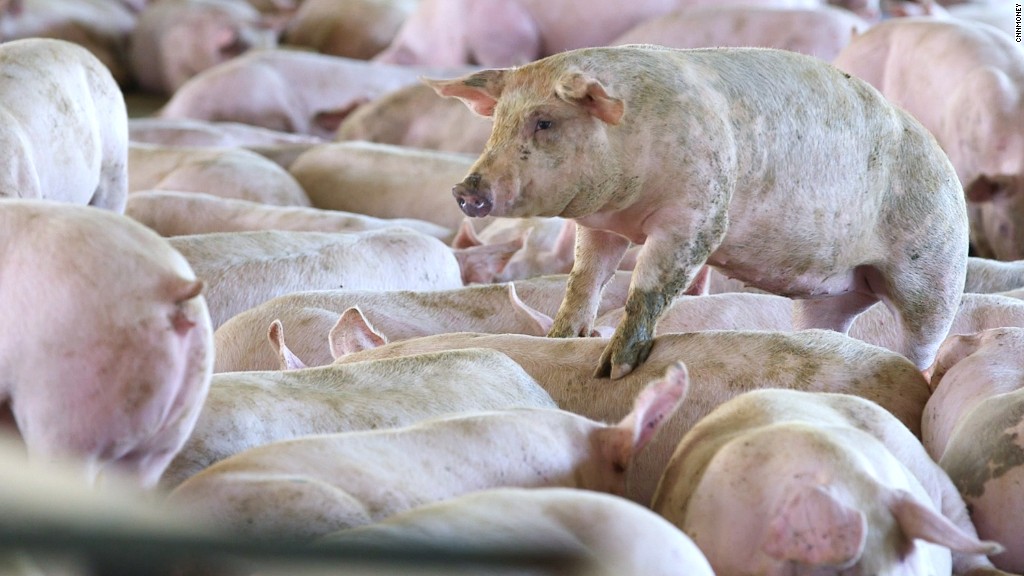
Most antibiotics, drugs that are vital for human health to fight bacterial disease, are not being used in humans.
Instead, they're being sold to animal producers.
More than 70% of antibiotics sold in the U.S. are for food production animals, according to the Johns Hopkins Center for a Livable Future.
The problem is that many experts believe this is an overuse of antibiotics, and they fear significant public health consequences.
Every time we use antibiotics, some bacteria survive -- and those drug-resistant bacteria can then multiply and spread. This can result in 'superbugs' -- bacteria that are resistant to antibiotics. As we use more and more antibiotics, the problem magnifies -- generating more numerous and powerful superbugs.
"We have been putting ourselves at risk for many, many, many decades and microbiologists and public health people and infectious disease physicians have been continuously warning," said Mansour Samadpour, President of IEH Laboratories.
He tests food for companies and says he finds antibiotic residues in some of the meat we eat.
In August, the Centers for Disease Control and Prevention said an estimated 37,000 people could die in the next five years from superbugs if health care centers don't work together to prevent infections.
What's being done to stop the problem
There are two main reasons food producers use antibiotics: One is to treat sick animals -- or to prevent them from getting sick in the first place. As our industrial food system has expanded over the last half century, animals are grown closer together and disease can spread fast.
The other reason is for "production purposes" -- to help them get fat.
"Antibiotics in some countries are used to create that optimal growth environment," said Sarena Lin, President of Cargill Animal Feed and Nutrition. "Our responsibility there is to make sure that we follow the government guidelines very judiciously."
And those government guidelines are changing in the United States.
The FDA put out new regulations aimed at phasing out the use of antibiotics in feed animals for production purposes, but would still allow medical uses, under the supervision of a veterinarian. The new rules are voluntary and food producers have until December 2016 to implement them.
"While it is not possible to speculate on future rates of antimicrobial use, the FDA does expect use of medically important antimicrobials for production purposes to cease," the FDA said.

But not all public health officials think the new regulations are adequate. One issue critics point to is that food producers will still be able to use antibiotics as a preventative measure. Some experts worry that might not be enough to cut down on their use.
"They're continuing to allow this disease prevention," said Keeve Nachman, a public health researcher at Johns Hopkins' Center for a Livable Future. "In practice, we're worried that disease prevention could look a whole lot like growth promotion, so at the end of the day, the way the drugs are used isn't going to change and the contribution to antibiotic resistance risk is not going to change."
While using antibiotics to prevent disease will still be allowed, the FDA says it believes the drugs should be targeted to specific animals and used for a limited amount of time. But open-ended prevention use is not explicitly banned by the new rules.


